Shows

The EBN Dispatch[10 AUG] Paper Cut — Stall Speed, Fast Cuts, Frayed TrustJobs are cooling while AI cuts get louder. Leaders tighten control, workers lose patience. Paper Cut connects the dots so HR and employer-brand leaders can act with clarity.
📰 Subscribe to the free Paper Cut newsletter: https://ebn.to/sub25
🔗 Follow EBN on LinkedIn: https://ebn.to/lin25
⸻
📌 Sources & Links:
Stall Speed Meets Automation Hype
Reuters: https://www.reuters.com/world/us/us-labor-market-cracks-widen-job-growth-hits-stall-speed-2025-08-01/
Financial Times: https://www...
2025-08-1002 min
The Richard Syrett ShowThe Necropolis of the North: Canada’s Descent into a Culture of DeathMONOLOGUE
The Necropolis of the North: Canada’s Descent into a Culture of Death
NEWSMAKER
Canada Post management that agreed to iron-clad job security for employees 40 years ago now finds the commitment “untenable,” says a federal report
https://www.blacklocks.ca/cites-1985-no-layoff-promise/
Parliament must “take a stand” against Canadian companies that move jobs to the United States to bypass Trump tariffs, the nation’s largest private sector union said yesterday.
https://www.blacklocks.ca/tells-feds-to-take-a-stand/
Tom Korski – Managing Editor of Blacklock’...
2025-05-231h 31
Qual der Wahl10. Gesundheitspolitik im Wahljahr 2020. Masken & Impfen als PolitikumIn dieser Folge erklärt Helena den Unterschied zwischen den USA und dem deutschen Gesundheitssystem und wie sich das Gesundheitssystem auf die 2020 US Präsidentsschaftswahlen auswirkt. Sie fragt eine Krankenpfleger und einen Schulkamerad nach ihren Perspektiven.
Quellen
https://www.ncbi.nlm.nih.gov/pmc/articles/PMC4193322/
https://www.statista.com/statistics/184955/us-national-health-expenditures-per-capita-since-1960/
https://www.statista.com/topics/1167/medicare/
https://www.pewresearch.org/politics/2020/08/13/important-issues-in-the-2020-election/
https://www.nejm.org/doi/full/10.1056/NEJMsr2031592
https://www.bbc.com/news/election-us-2020-54459078
https://www.bbc.com/news/world-us-canada-54654937
https://www.commonwealthfund.org/publications/issue-briefs/2020/aug/looming-crisis-health-coverage-2020-b...
2022-04-2212 min
scientificanadaRandom Walk 15: ComSciConCan #2 with Sarah TurnerTHIS WEEK: Sarah Turner studies Community Health Science at the University of Manitoba, focusing on breast milk, epidemiology, and health promotion. Her work in science communication stems from interest in science policy and advocacy. We talk about her research, scientific/non-scientific writing, and she gives some tips for writing your first OpEd. CHECK OUT: CHILD study: https://childstudy.ca/ Quick tips for writing your first OpEd: https://evidencenetwork.ca/resources/write-a-snappy-oped-2/ Twitter: Sarah = https://twitter.com/SarahTurner11 , and the Azad Lab: https://www.azadlab.ca/ AMPLIFY: If you want to learn more about the science of inf...
2020-06-2232 min
Futureproofing CanadaPO Podcast 63 - Why isn’t social assistance improving health outcomes?Why isn’t social assistance improving health outcomes?, a Policy Options podcast. Income levels and health are closely linked, and people living in poverty are far more likely to have poor health than people with higher incomes. Social assistance programs should be helping to close this gap, but a study recently submitted to the Ontario government shows that support programs in Canada, the US and the UK are falling short.
Arjumand Siddiqi joined the podcast to discuss social determinants of health, the results of her study, and why we need more effective strategies to address income-based health inequities.
Arjumand Siddiqi is...
2018-08-0121 min
EvidenceNetworkEN Podcast Managing Healthcare- Why Brains And Money Aren’t Enough - 2017 - 06 - 16Canada’s healthcare system has brains and money, but it’s still not performing well.
Find out how a new generation of Canadian academics can use management skills to improve health outcomes across the country.
Adalsteinn Brown is an expert advisor with EvidenceNetwork.ca, the Director of the Institute of Health Policy, Management and Evaluation and the Dalla Lana Chair in Public Health Policy at the University of Toronto. Prior roles include senior positions in the Ontario government.
Stephen Bornstein is Director of the Centre for Applied Health Research and a Professor at Memorial University. Prior roles include senior positions in t...
2017-06-3007 min
EvidenceNetworkEN Podcast How A National Drug Plan Can Save Canada- 2017 - 06 - 25,Nav Persaud says a national drug plan would save lives, save money, and encourage better prescribing habits.
So what are we waiting for?
Nav Persaud is an expert advisor with EvidenceNetwork.ca, a physician and associate scientist at St Michael’s Hospital and assistant professor at the University of Toronto.
2017-06-2706 min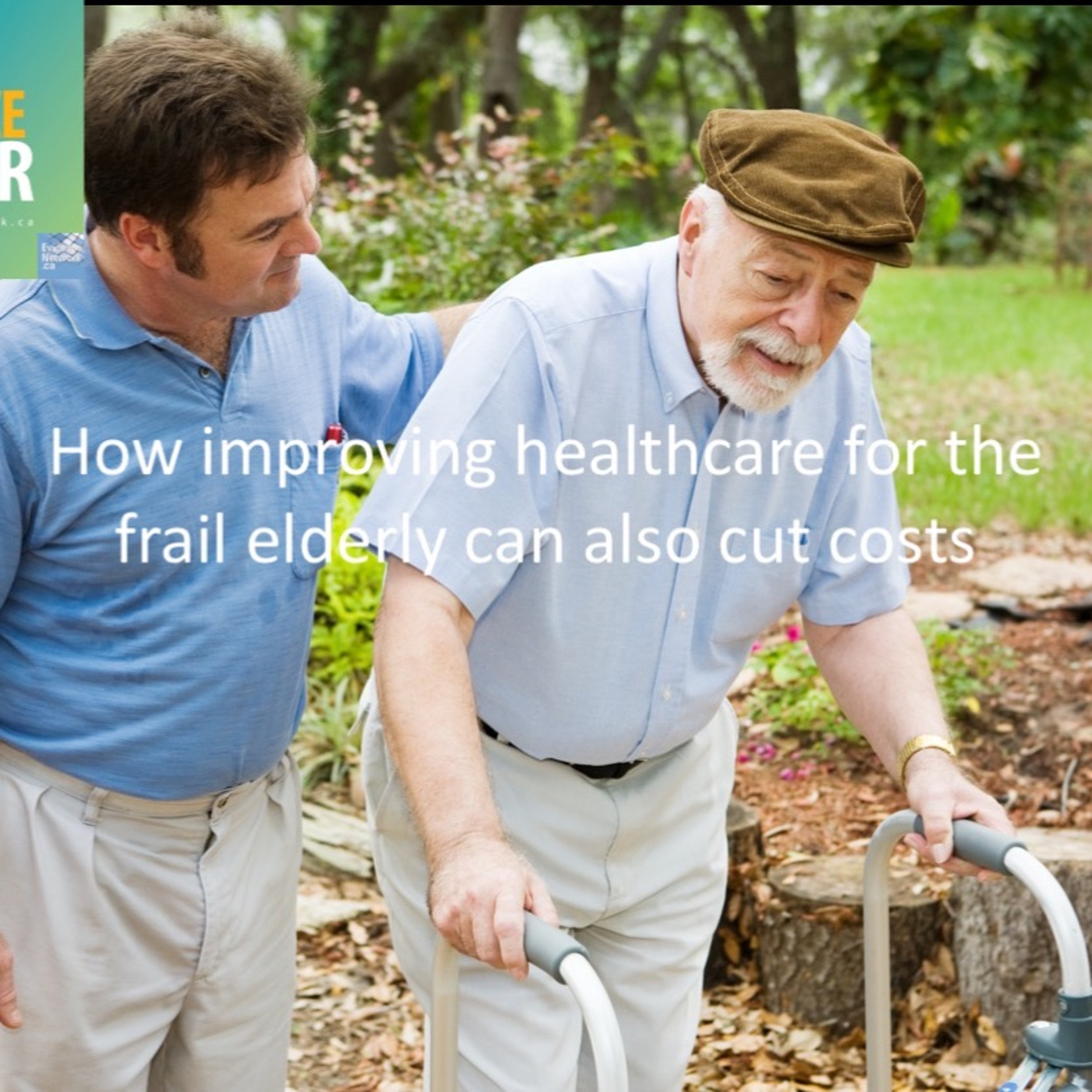
EvidenceNetworkHow improving healthcare for the frail elderly can also cut costsMedical frailty already affects over one million Canadians. It can be expensive and upsetting for frail people and their loved ones.
Dr. John Muscedere explains how Canada’s healthcare system can better support frail people, who are typically elderly and more vulnerable.
Find out how better healthcare for people who are medically frail also improves care for people who are younger and have more resilience.
John Muscedere is the Scientific Director and CEO of the Canadian Frailty Network (CFN), a not-for-profit organization funded in 2012 by the Government of Canada’s Networks of Centres of Excellence (NCE) program.
Interview by Neeta Das...
2017-06-0606 min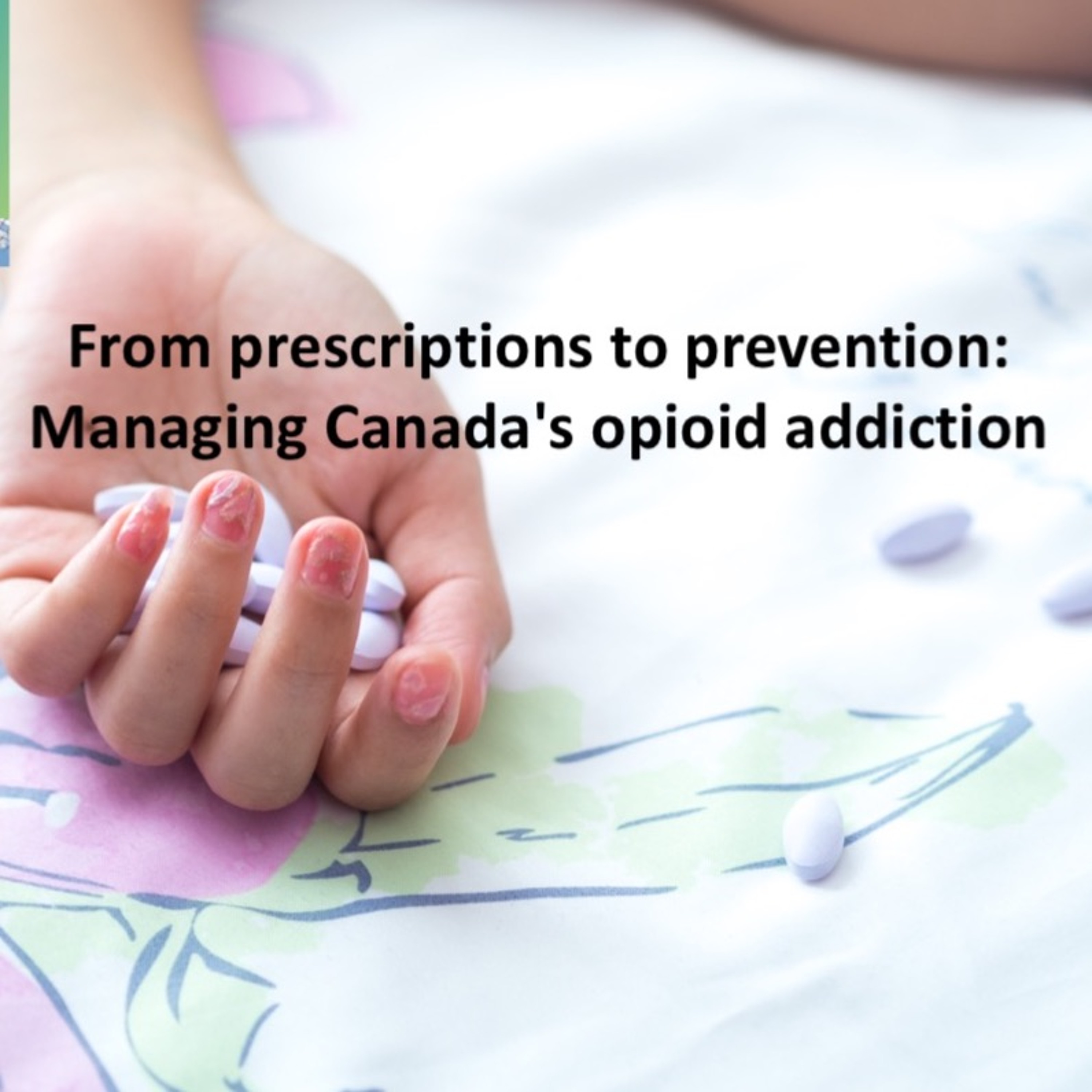
EvidenceNetworkFrom prescriptions to prevention: Managing Canada's opioid addictionCanada has an opioid problem and it’s more widespread than fentanyl on our streets: We are becoming increasingly dependent on doctor-prescribed opioids.
Drs. Kate Smolina and Kim Rutherford explain why and how to kick our prescription opioid habit.
Kate Smolina is an expert advisor with EvidenceNetwork.ca. She was a postdoctoral fellow at the School of Population and Public Health, University of British Columbia. She currently works as the Director of the BC Observatory for Population & Public Health at the BC Centre for Disease Control.
Kim Rutherford is a family physician at Spectrum Health, Vancouver and a clinical instructor at...
2017-06-0206 min
EvidenceNetworkHow can we overcome an ageist healthcare system?Dr. Kenneth Rockwood, a geriatrician in Halifax and Researcher with the Canadian Frailty Network says that an ageist attitude is an underlying cause of unsuitable healthcare for older patients.
The complicated conditions of elderly and frail patients clash with the current healthcare system which tends to focus on treating single illnesses.
The key, he says, is a shift in attitude from a single illness approach to treating frail and elderly patients as a whole.
By relying less on subspeciality medicine, and focusing more on expert generalist care, treatment can be improved.
Changing the system won’t just benefit the elderly, cl...
2017-04-1905 min
EvidenceNetworkFunding community-based programs can reduce male suicideThe suicide rate for men in Canada is three to four times higher than women.
This rate increases even more in certain subgroups such as gay men, indigenous men or veterans.
Evidence suggests that accessible, community-based programs that target these vulnerable groups are beneficial.
These initiatives aim to open up the conversation about mental health and reduce stigma while providing therapeutic opportunities.
Britney Dennison, an advisor with University of British Columbia’s Mens’ Health Research Group says programs like these help people like Jason speak out about his struggle with mental health.
John Oliffe is an expert advisor with EvidenceNetwork.ca...
2017-04-1905 min
EvidenceNetworkUnderstanding the opioids crisis in CanadaNorth America is grappling with an opioids epidemic. British Columbia has even declared a public health emergency because of a significant increase in opioid-related overdoses and deaths.
Dr. David Juurlink, Head of the Division of Clinical Pharmacology and Toxicology at the University of Toronto, and Tara Gomes, Epidemiologist and Scientist at St. Michael’s Hospital and the Institute for Clinical Evaluative Sciences, explain the genesis of this crisis, why physicians are prescribing so many high-strength opioids and offer some solutions to end the crisis.
Interview by Mélanie Meloche-Holubowski, podcast editor at EvidenceNetwork.ca, and journalist with Radio-Canada.
The Evidence Net...
2016-11-2406 minFutureproofing CanadaPO Podcast 23 - Why more academics should engage with the mediaWhy more academics should engage with the media, a Policy Options Podcast. Imagine putting months of work into an article to have it read by only 10 people. This is the situation in much of academia right now, where the influx of new material is making it increasingly difficult for academics to get their research out to the public and to policy-makers. What can academics do to get their work noticed? Noralou Roos, director of EvidenceNetwork.ca and professor at the Max Rady College of Medicine at the University of Manitoba, stopped by the podcast to offer some advice.
Download for...
2016-10-1830 min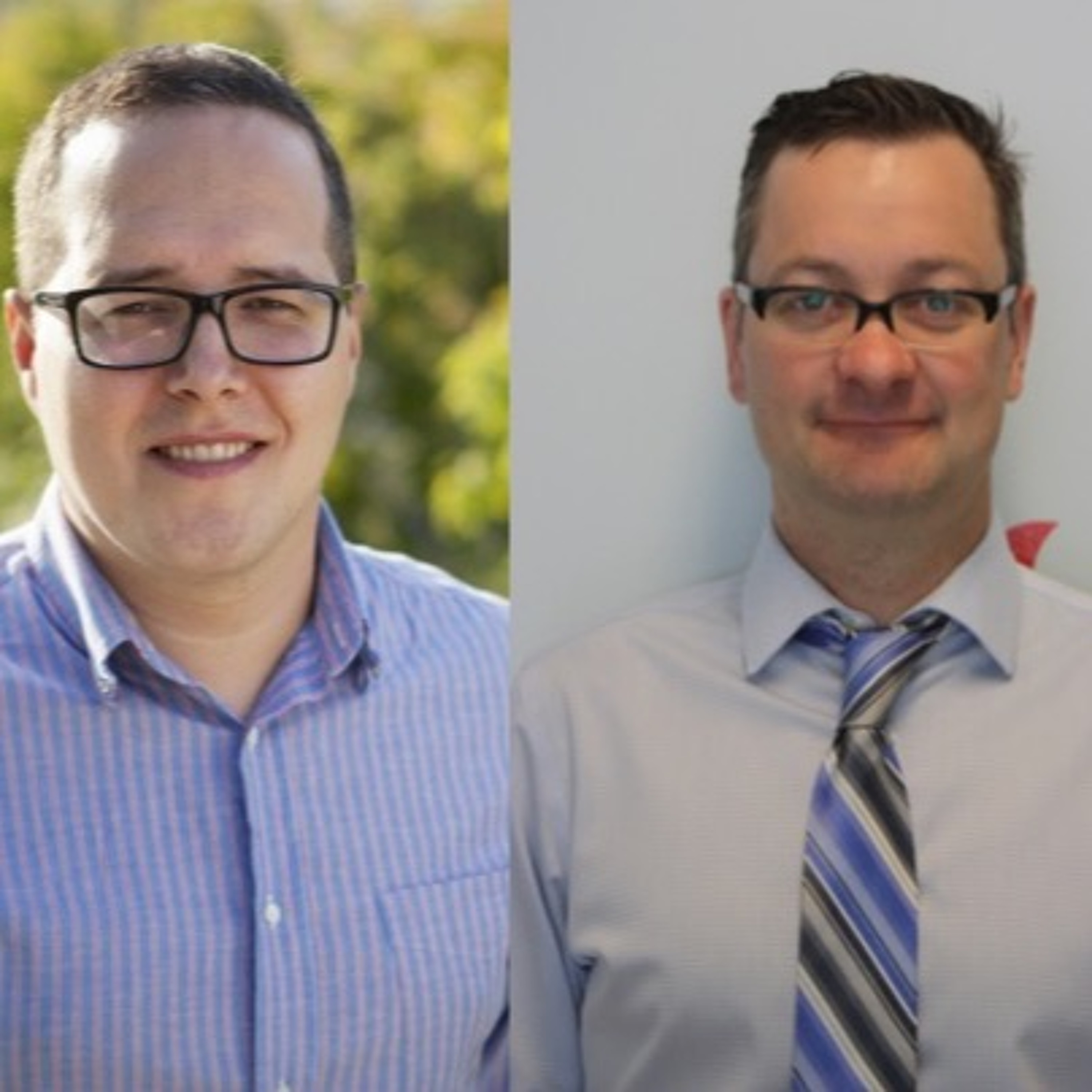
EvidenceNetworkCulture is Healing in Indigenous CommunitiesWhile some indigenous populations in Canada have higher risks of health problems, our usual treatments often focus solely on western medical approaches.
Experts say that cultural strategies proposed by indigenous leaders that address the multi-faceted problems are effective but regularly ignored.
While cultural approaches are not a replacement for medicine, working with communities to incorporate cultural strategies may be beneficial says Dr. Christopher Mushquash, an Associate Professor in the Department of Psychology at Lakehead University, and the Northern Ontario School of Medicine, and Clinical Psychologist at Dilico Anishinabek Family Care.
Jon McGavock, a professor of health sciences at the University...
2016-10-1105 min
EvidenceNetworkHow can we change the health workforce to serve our aging population?As the population ages, experts say that the current institutional model of care needs to change to better support aging patients.
Dr. Ivy Bourgeault, a professor at the University of Ottawa, says that moving towards homecare is an important step to cut costs and improve quality of care.
Gregory Huyer, who studies Health Systems with Professor Bourgeault, says that a restructuring of the workforce is necessary.
Dr. Ivy Bourgeault is a Professor in the Faculty of Health Sciences at the University of Ottawa and the Canadian Institutes of Health Research Chair in Health Human Resource Policy which is jointly funded...
2016-10-0305 min
EvidenceNetworkRe-thinking care for Canada’s aging populationAs the population ages, there is a growing belief that a tsunami of elderly patients will bankrupt the healthcare system, but evidence shows that this is a misconception.
Our aging population accounts for only modest – and sustainable – increases in health spending.
But experts say there are better ways to organize health care to more efficiently and effectively deal with swelling numbers of seniors who have different care needs.
Dr. Neena Chappell, a professor at the institute of Aging and Lifelong Health at the University or Victoria says that integration of home care and preventative care into the existing system will cut...
2016-09-2806 min
EvidenceNetworkA Sugar Tax is Not the AnswerAs high obesity rates continue to be a health concern for Canadians, there is growing interest in introducing a sugar sweetened beverage tax.
While some believe a pop tax would act as a deterrent, similar to taxing tobacco, experts say that people of lower socioeconomic status would not benefit.
Natalie Riediger, a professor of Health Sciences and Human Nutrition at the University of manitoba, says that regulating advertising and improving access to healthy foods are more beneficial solutions.
Ultimately, she says that raising people out of poverty should be the long term goal to improve nutrition and reduce obesity.
2016-09-0705 min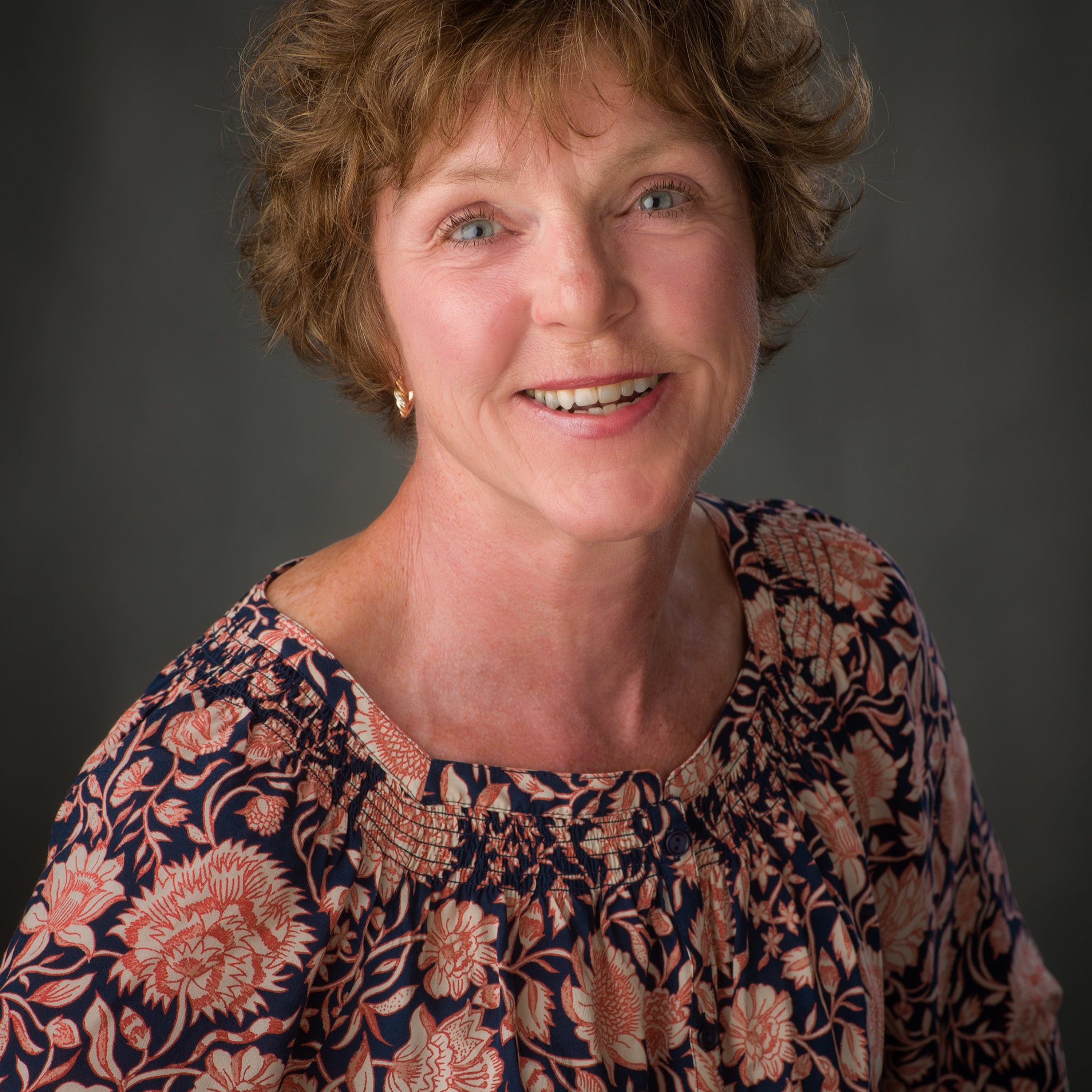
EvidenceNetworkCan filing taxes be a treatment for poverty?While the link between poverty and poor health outcomes is well established, experts say that many health care providers feel unequipped to intervene.
Nancy McPherson, a Population Health Analyst, says that one solution is for health practitioners to diagnose and treat poverty, like any other physical condition.
An immediate step is to encourage patients to file their taxes, and improve access to programs that aid this process.
Many low-income Canadians are entitled to cash refunds and other health or social benefits when they file their taxes.
She says that integrating community income tax filing programs with the healthcare system is...
2016-08-2205 min
EvidenceNetworkWhy do Canada’s children lag so far behind?In a recent UNICEF report, Canada ranked in the bottom half of the world’s richest countries in overall child well-being and child equality.
Experts say that a lack of access to healthcare and inadequate support for parents are reasons why Canada lags behind.
Dr. Denis Daneman from the Hospital for Sick Children in Toronto says that when it comes to the welfare of children, not everyone is on an equal playing field.
Nicole Letourneau is an expert advisor with EvidenceNetwork.ca, and the author of Scientific Parenting. She is a professor at the University of Calgary’s Owerko Centre focu...
2016-08-2205 min
EvidenceNetworkBreaking the boundaries of complex care for ChildrenThe Complex Care Initiative at Sick Kids began in 2006, by the late pediatrician Dr. Norman Saunders. For ten years it has opened its doors to children with multiple and complex health challenges, often times who could not find adequate care anywhere else.
For Ian Brown’s 19-year-old son Walker who was diagnosed with a rare genetic disorder at birth, the care provided more than just resources to manage his health. It was the first time his son was not just treated as a patient, or problem to be fixed, but a human being.
Dr. Denis Daneman, paediatrician-in-chief at the Hospital fo...
2016-06-3006 min
EvidenceNetworkEnding homelessness through housing first initiativesUp to 15 percent of the homeless population in Canada is struggling with mental illness. Could giving them a permanent home be a way off the streets and into a healthier life?
Dr. Jino Distasio, Director of the Institute of Urban Studies at the University of Winnipeg and Vicky Stergiopoulos, Psychiatrist-in-chief at St. Michael’s Hospital and investigator for the At home/Chez soi program explain how Housing First initiatives could reduce the number of homeless in Canada.
Interview by Mélanie Meloche-Holubowski, social media and podcast editor at EvidenceNetwork.ca, and journalist with Radio-Canada.
The Evidence Network of Canadian Health Pol...
2016-05-3106 min
EvidenceNetworkImplementing a basic income in Canada to improve health and reduce povertyOffering a guaranteed annual income to reduce poverty and improve health is not a new idea in Canada, but it is once again on the political radar. Dr. Evelyn Forget and Dr. Danielle Martin explain why Canada should consider implementing a basic income.
Professor Evelyn Forget is a health economist at the University of Manitoba. Her re-examination of Mincome and ongoing work on Guaranteed Annual Income is supported by CIHR and SSHRC.
Danielle Martin is a family physician, Vice President at Women’s College Hospital and an advisor with EvidenceNetwork.ca
Interview by Mélanie Meloche-Holubowski, journalist intern at EvidenceNetwork.ca...
2016-04-1205 min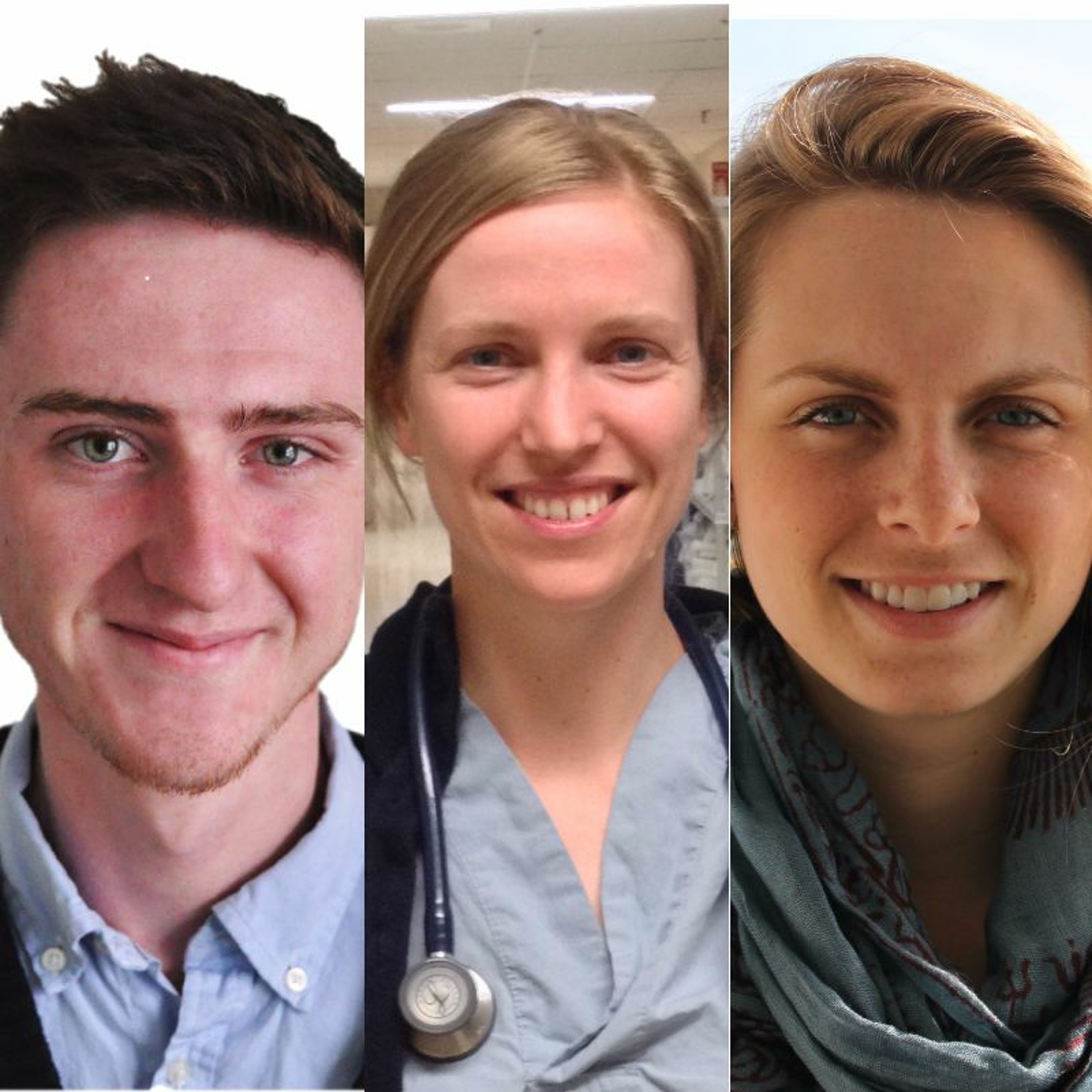
EvidenceNetworkHow future doctors see social factors shaping their medical practiceMedical students learn how to manage and treat disease. But once they start meeting patients in clinics and hospitals, they are also confronted with the fact that social factors have a huge impact on health and that their medical interventions might sometimes be limited.
Two medical residents, Laura Stymiest and Lita Cameron, and medical student, Chris Harper, explain how they hope to shape their medical practice to include social determinants of health and how they will work with the community to offer the best care possible for their patients.
Lita Cameron is a Family Medicine resident at McMaster University. She...
2016-02-1705 min
EvidenceNetworkWhen it comes to medical tests and treatments, more is not always betterAs technology and medical knowledge progress, doctors and patients have access to many more screening tools. But with the availability of more tests, also comes the risk of overtesting and overdiagnosis, worries health care researcher, Alan Cassels and doctors Wendy Levinson and Eric Bohm.
They explain why more medical tests and treatments do not necessarily add value to care, how they can hurt our health care system -- and what can be done to reduce the number of non-essential tests and treatments.
Alan Cassels is a pharmaceutical policy researcher, author and expert advisor with EvidenceNetwork.ca.
Eric Bohm is an...
2016-01-1105 min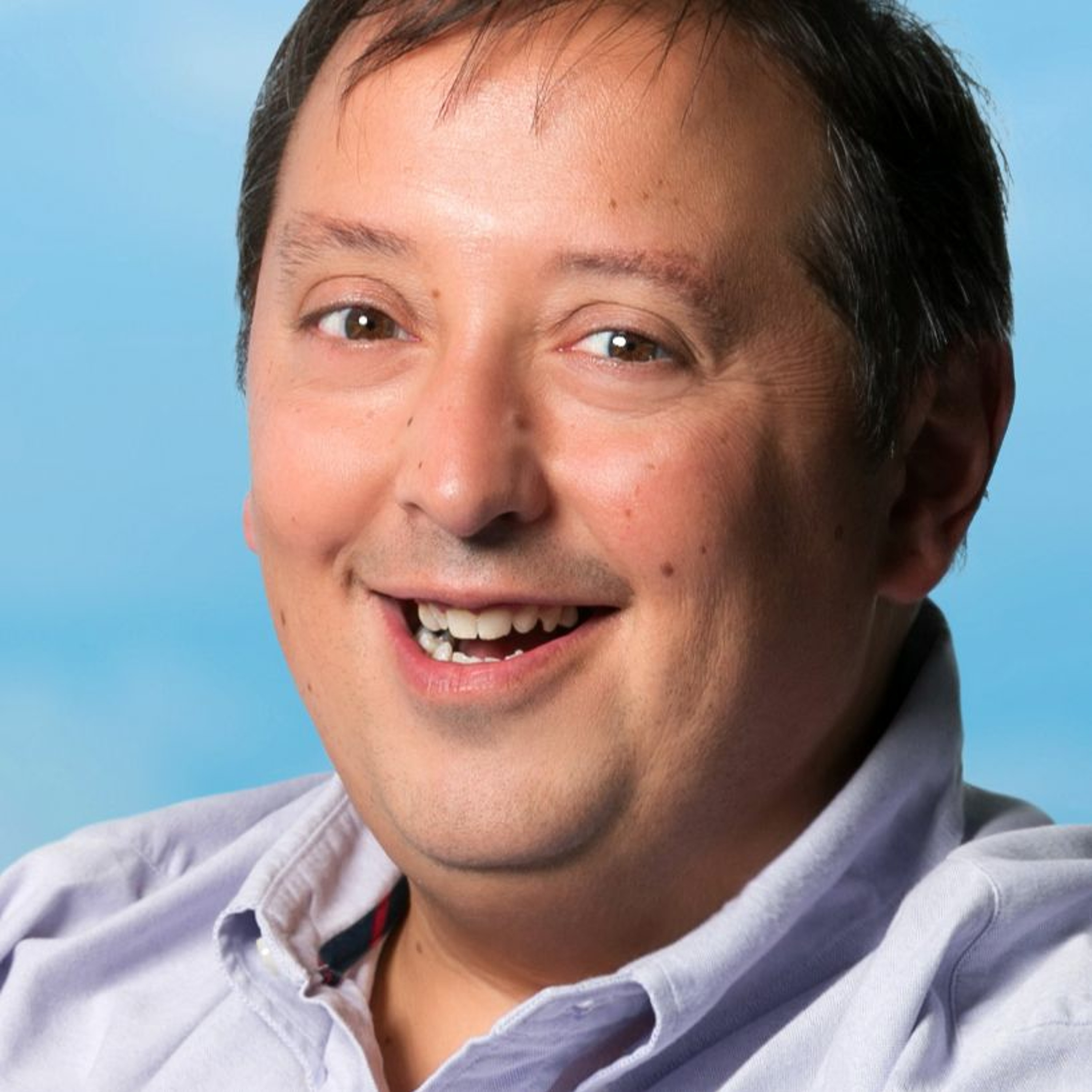
EvidenceNetworkHow non-profit organizations can better communicate their messages to the mediaBeing published in the mainstream media is a great way for non-profit organizations to educate the public and to influence politicians and policy makers. But it’s not always easy to grab the attention of journalists.
Ed Walz, Vice President for First Focus Campaign for Children spoke with Managing Editor of Evidence Network, Kathleen O’Grady in Washington, D.C. about the ways organizations can get their message more widely distributed in both traditional and new media.
https://campaignforchildren.org/
http://www.evidencenetwork.ca
(Ed has since moved on to work with Springboard Partners).
Interview produced by Mélanie Meloche-Holubowski, journ...
2015-12-0708 min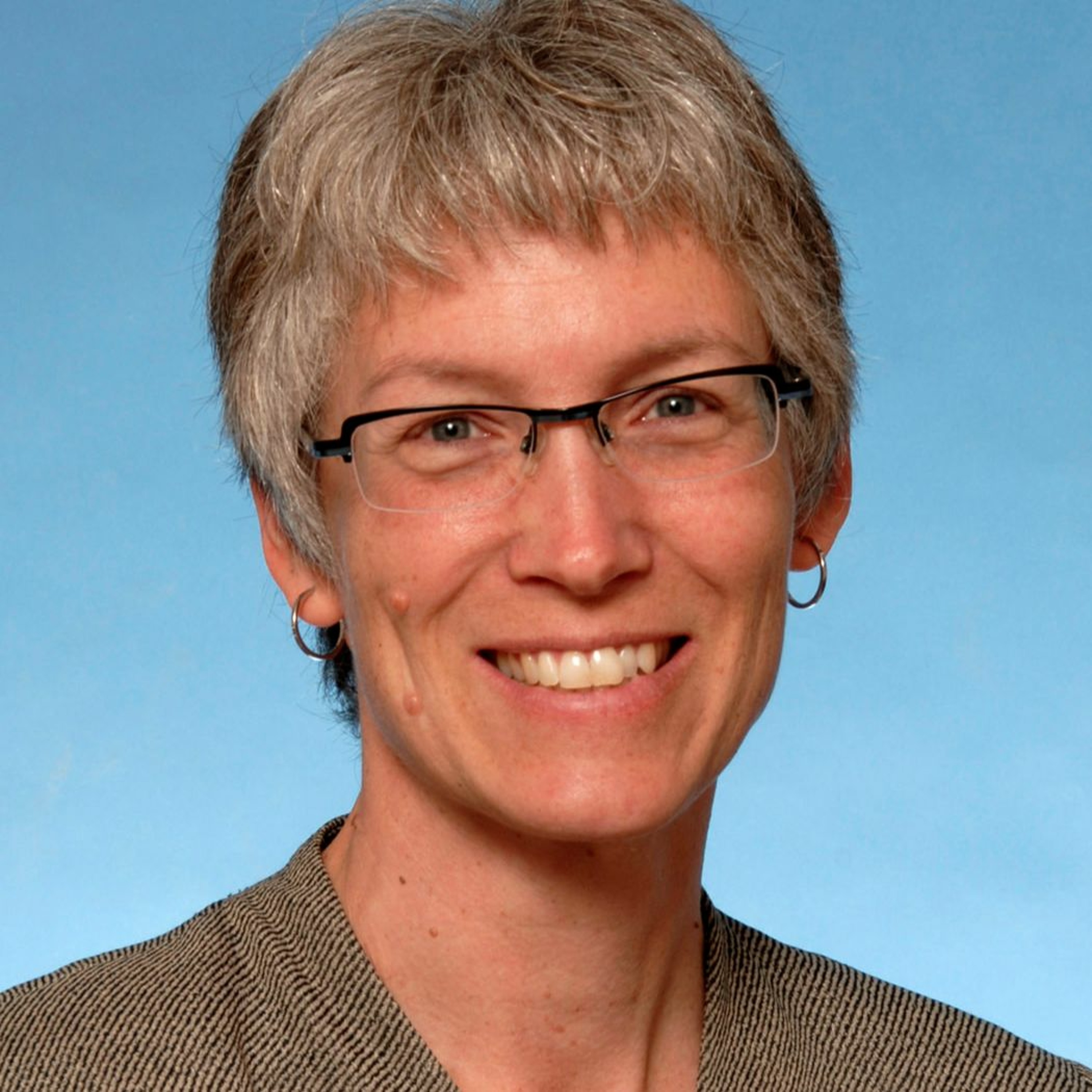
EvidenceNetworkHow can Canada reduce the number of children in care?There are approximately 30,000 foster kids in Canada. Manitoba has the highest rates in Canada, with 10,000 kids in care.
Canada does not have a national strategy for the provision of child protection services and does not keep reliable national statistics on kids in care, making it difficult to fully grasp the problem, says Dr. Marni Brownell, Senior research scientist with the Manitoba Centre for Health Policy and Associate professor in the Department of Community Health Sciences at the University of Manitoba.
Interview by Mélanie Meloche-Holubowski, journalist intern at EvidenceNetwork.ca, and journalist with Radio-Canada.
The Evidence Network of Canadian Health P...
2015-11-0304 min
EvidenceNetworkUsing incarceration as an opportunity to improve inmates’ healthOne in 200 Canadians is detained or incarcerated in jail or prison every year, yet their access to health care is a far cry from the services offered in Canadian communities. Dr. Ruth Martin and Dr. Fiona Kouyoumdjian explain how incarceration ー even for short time spans ー can be a time to improve an inmate’s health and reduce the chances of reincarceration.
Fiona Kouyoumdjian is a Postdoctoral Fellow at the Centre for Research on Inner City Health at St. Michael’s Hospital and a Family Physician at a provincial correctional facility in Hamilton, Ontario.
Ruth Martin is a Clinical Professor and Director...
2015-10-2805 min
EvidenceNetworkOur healthcare system designed for the convenience of practitioners, not patientsThis convocation speech was delivered to graduating MDs at the University of Manitoba on the receipt of an honorary doctorate on May 14, 2015.
André Picard is a health reporter and columnist at The Globe and Mail, where he has been a staff writer since 1987. He is also the author of three bestselling books.
The Evidence Network of Canadian Health Policy, commonly known as EvidenceNetwork.ca, is a Canadian healthcare resource designed with the needs of journalists in mind. The project links journalists with health policy experts to provide access to credible, evidence-based information. We also create original OpEds, articles, podcasts, infographics, p...
2015-10-2306 min
EvidenceNetworkFixing a broken environment to curb the obesity crisisObesity rates have roughly doubled in the past 30 years in Canada: 25 % of Canadian adults and 13% of children are obese.
Dr. Yoni Freedhoff, an assistant professor of family medicine at the University of Ottawa, and Dr. Denis Daneman, paediatrician-in-chief at the Hospital for Sick Children in Toronto, explain why it is so hard to fight this epidemic.
Interview by Mélanie Meloche-Holubowski, journalist intern at EvidenceNetwork.ca, and journalist with Radio-Canada.
The Evidence Network of Canadian Health Policy, commonly known as EvidenceNetwork.ca, is a Canadian healthcare resource designed with the needs of journalists in mind. The project links journalists with h...
2015-10-0105 min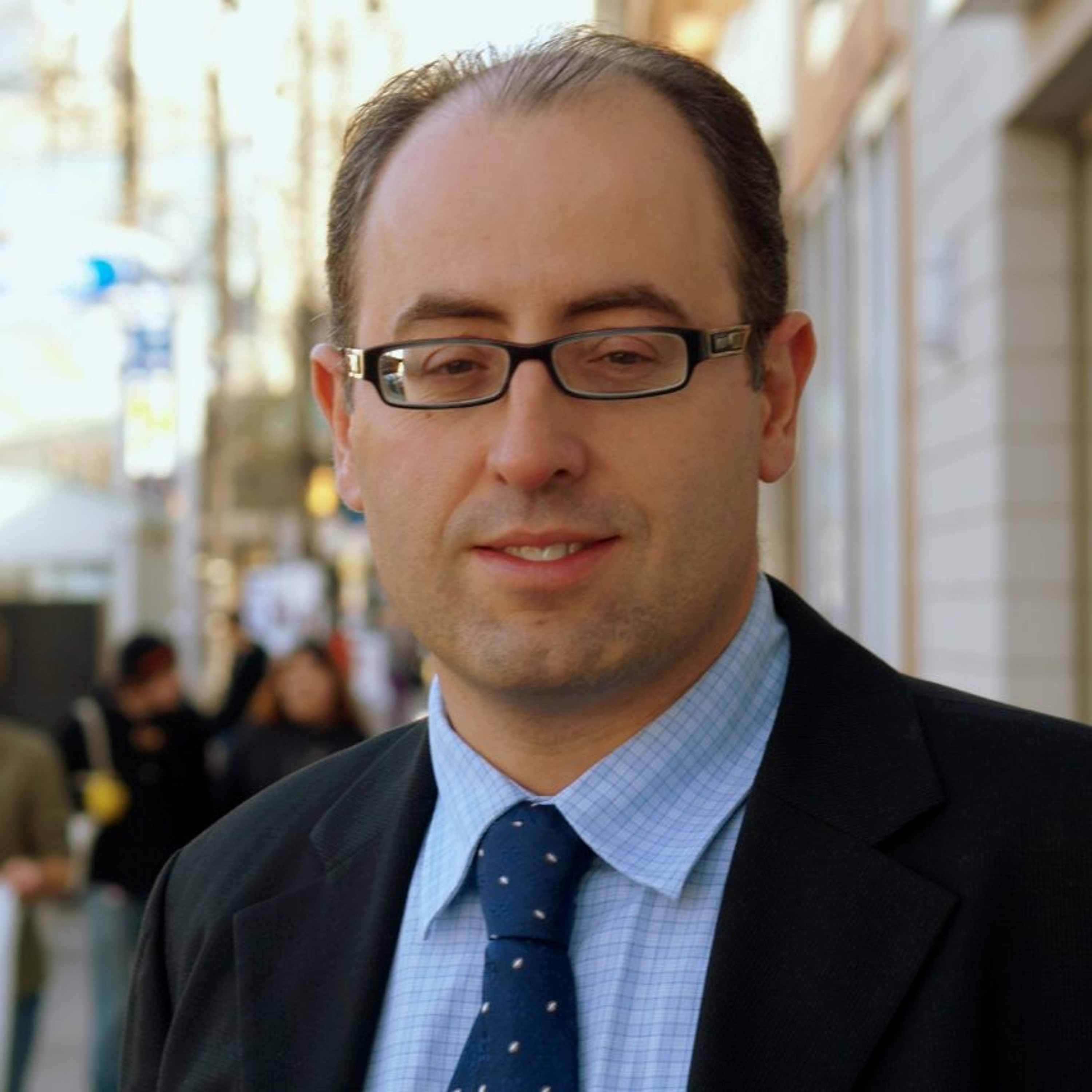
EvidenceNetworkEnding homelessness in Canada is possibleOn any given night in Canada, over 30 000 people are without a shelter. The director of the Institute of Urban Studies at the University of Winnipeg, Dr. Jino Distasio, believes that it is possible to end homelessness in Canada. How? By helping one person at a time.
Interview by Mélanie Meloche-Holubowski, journalist intern at EvidenceNetwork.ca, and journalist with Radio-Canada.
The Evidence Network of Canadian Health Policy, commonly known as EvidenceNetwork.ca, is a Canadian healthcare resource designed with the needs of journalists in mind. The project links journalists with health policy experts to provide access to credible, evidence-based information. W...
2015-09-2904 min
EvidenceNetworkGiving healthcare experts a voice in the mainstream mediaEvidencenetwork.ca creates original media content on health policy topics for publication in the mainstream media. Evidence Network relies on 70 Canadian academics and nine international experts who tackle complex and controversial issues surrounding the healthcare system.
It was founded by Dr. Noralou Roos, professor in the Department of Community Health Sciences, Faculty of Medicine, University of Manitoba. She wanted to make sure that the work being done by Canadian researchers was being communicated to people outside the medical community. Since 2011, over 2000 original articles and OpEds have been published.
Interview by Mélanie Meloche-Holubowski, journalist intern at EvidenceNetwork.ca, and journalist w...
2015-08-2503 min
EvidenceNetworkWhy Canadian doctors should be on the front lines of the anti-poverty struggleOver three million Canadians struggle to make ends meet. Research shows that socioeconomic status and health are intertwined; this is why many doctors now consider social determinants of health when treating patients. Some doctors are even becoming advocates for their patients by using their influence to push for policy change. Four health care experts explain why poverty should be treated as an urgent medical issue in Canada, not just a moral one.
John Millar is a Clinical Professor at the School for Population and Public Health at the University of British Columbia where he is involved in teaching and research...
2015-08-1006 min
EvidenceNetworkShould eye examination be a school entry requirement in Canada?One in every six Canadian children may have a vision problem that makes it difficult to learn and to read, but only 14 percent of children under the age of six receive professional eye care. This is a statistic that Dr. Elizabeth Lee Ford Jones, Professor of Paediatrics at The Hospital for Sick Children and the University of Toronto, simply believes is unacceptable. More school districts and provinces are considering requiring mandatory immunization in order to attend school. Should eye examination be added to the list of entry requirements?
Interview by Mélanie Meloche-Holubowski, journalist intern at EvidenceNetwork.ca, and journalist w...
2015-07-2303 min
EvidenceNetworkChildren with special needs: Addressing funding constraints in the public school systemMany schools across Canada are struggling to get the resources and funding needed to help students with special needs. Dr. Stuart Shanker and Susan Hopkins explain why governments need to address the funding shortfall and how schools are trying to keep up with the demand.
Stuart Shanker is an expert with EvidenceNetwork.ca and a Distinguished Research Professor of Philosophy and Psychology at York University and Director of the Milton and Ethel Harris Research Initiative at York University.
Susan Hopkins, is the executive director for the Society for Safe and Caring Schools and Communities.
Interview by Mélanie Meloche-Holubowski, journalist i...
2015-06-2404 min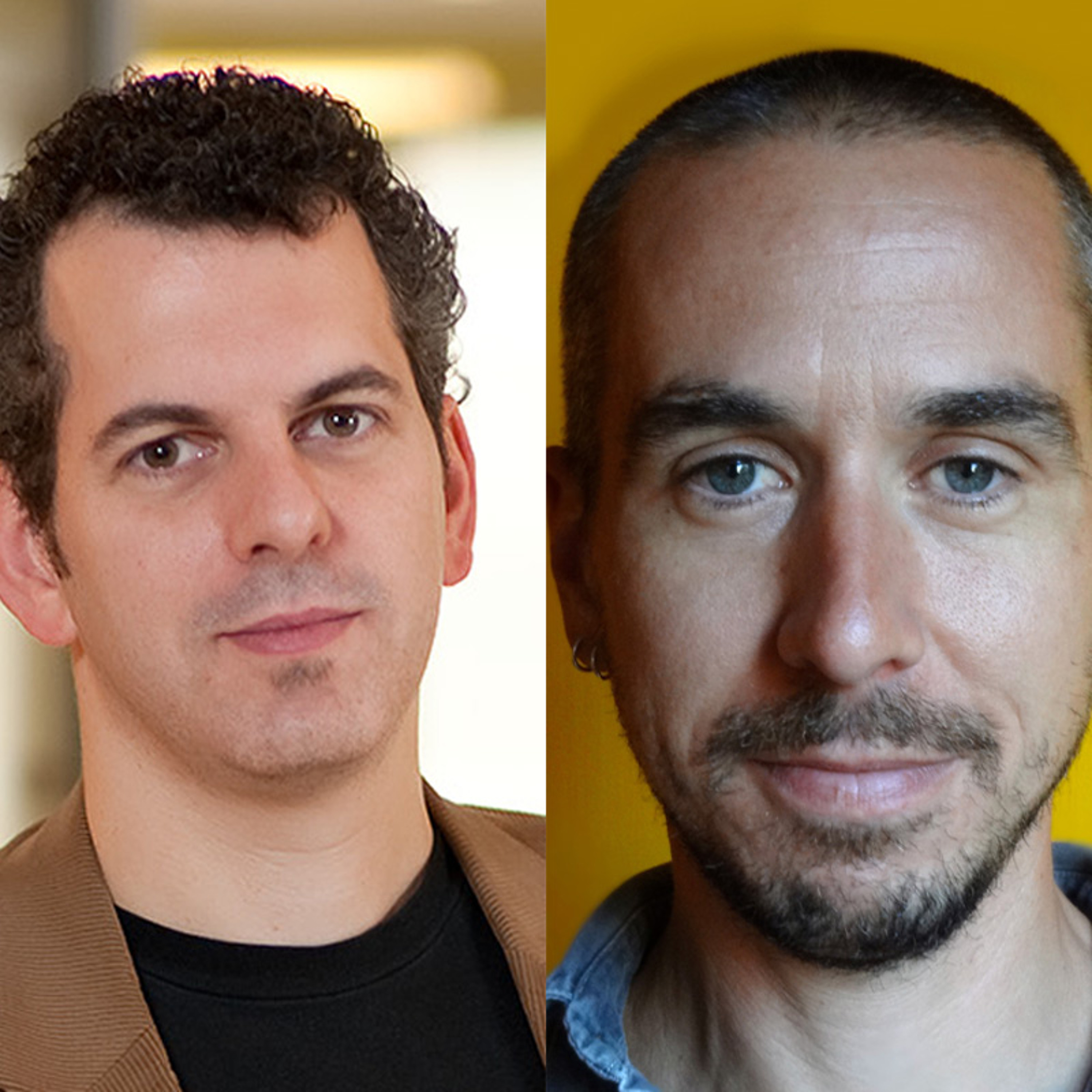
EvidenceNetworkCanadian researchers call on fellow scientists to be more vocal in the mediaTalking to the media for a scientist may be a scary prospect. Yet some are calling on their peers to have their voices more often heard in the media in order to counter balance the place that are taking think thanks and lobbyists.
Damien Contandriopoulos, from the Public Health Research Institute at the University of Montreal, and Marc-André Gagnon, an assistant professor at the School of Public Policy and Administration at Carleton University, argue that researchers have a responsibility to inform the public about their findings and their ideas.
Damien Contandriopoulos (Ph.D.) is Associate Professor in Nursing, Researcher at t...
2015-05-2903 min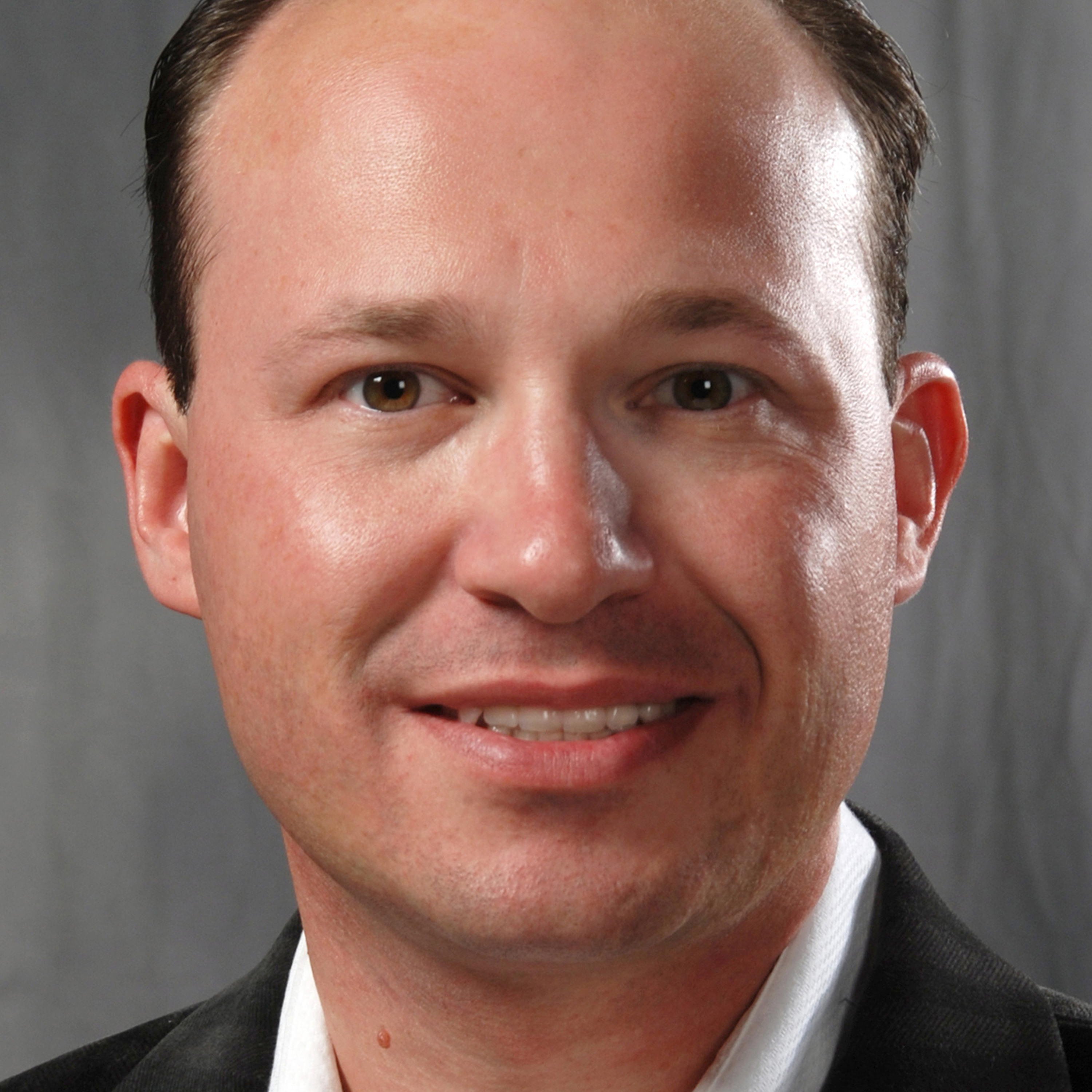
EvidenceNetworkHow can we improve access to dental care in Canada?Going to the dentist is too expensive for many Canadians. A report from the Canadian Academy of Health Sciences found that nearly 20% of Canadians have avoided going to the dentist because of the costs and that 95% of dental care is paid out-of-pocket or through private dental insurance.
Dr. Robert Schroth explains why your dentist bill is so hefty and how we can help all Canadians have access to proper dental care.
Dr. Schroth is an Associate Professor & Clinician-Scientist in the Department of Preventive Dental Science (Faculty of Dentistry) and the Department of Pediatrics & Child Health (Faculty of Medicine) at the...
2015-05-2603 min
EvidenceNetworkWhy Canadian employers waste $5 billion a year on inefficient drug coverageEmployers in Canada spend an estimated five billion dollars a year on drug coverage for their employees. Yet, private plans are notoriously inefficient and they often cover higher priced drugs that are not necessarily better for consumers’ health, explains Alan Cassels. No wonder calls for a national pharmacare program are growing. Such a system would be more efficient, restrict the coverage of drugs that are not of good value and it would drive the price of drugs down, adds Alan Cassels.
Alan Cassels is a Drug Policy Researcher affiliated with the Faculty of Human and Social Development at the University of...
2015-05-1902 min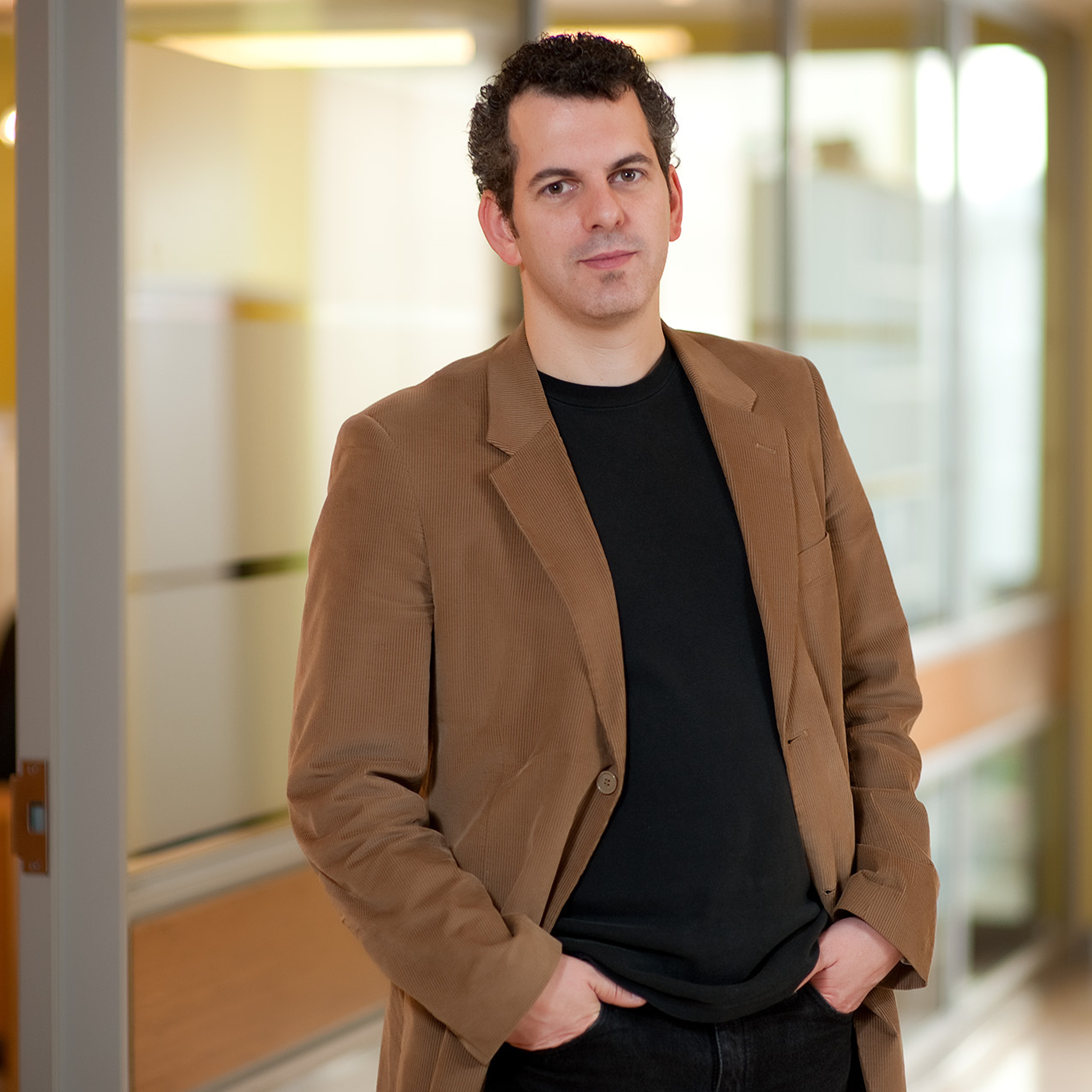
EvidenceNetworkL’inefficacité de l’assurance-médicaments privée coûte 5 milliards chaque année aux entreprisesDix pour cent des Canadiens n’achètent pas les médicaments qui leurs sont prescrits à cause des coûts. En fait, le Canada est le seul pays de l’OCDE avec un système public universel d’assurance-maladie, qui n’inclut pas les médicaments.
Les régimes privés sont généralement inefficaces et coûtent au-delà de 5 milliards de dollars chaque année aux entreprises, explique Marc-André Gagnon. Pourquoi les entreprises et les assureurs acceptent-ils autant de gaspillage?
Marc-André Gagnon est expert-conseil à EvidenceNetwork.ca et professeur adjoint à la School of Public Policy and Administration de l’Université Carleton.
Entrev...
2015-05-0504 min
EvidenceNetworkWhy Canada needs a national pharmacare programCanada is currently the only developed country with a universal health-care system that does not include universal coverage of prescription drugs. And paradoxically is the most expensive one. One in ten Canadians chose not to get the prescriptions drugs they were given by their doctors because of out-of-pocket costs. Dr Steve Morgan explains how a national pharmacare program would ensure that Canadians have access to a more complete and sustainable health care system.
Dr. Steve Morgan is a Professor at the University of British Columbia’s School of Population and Public Health, an expert in pharmaceutical policy and an expert fo...
2015-04-1403 min